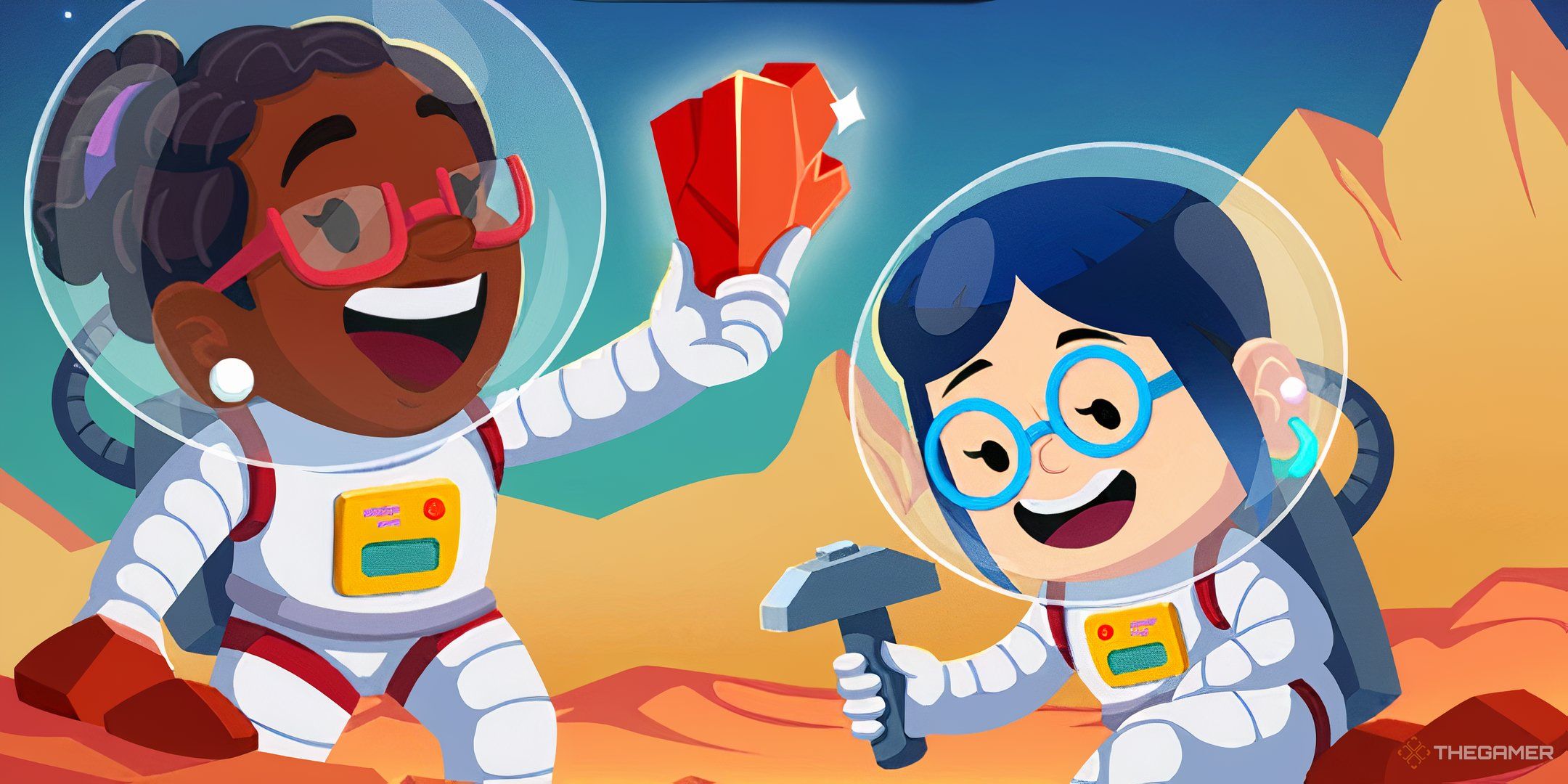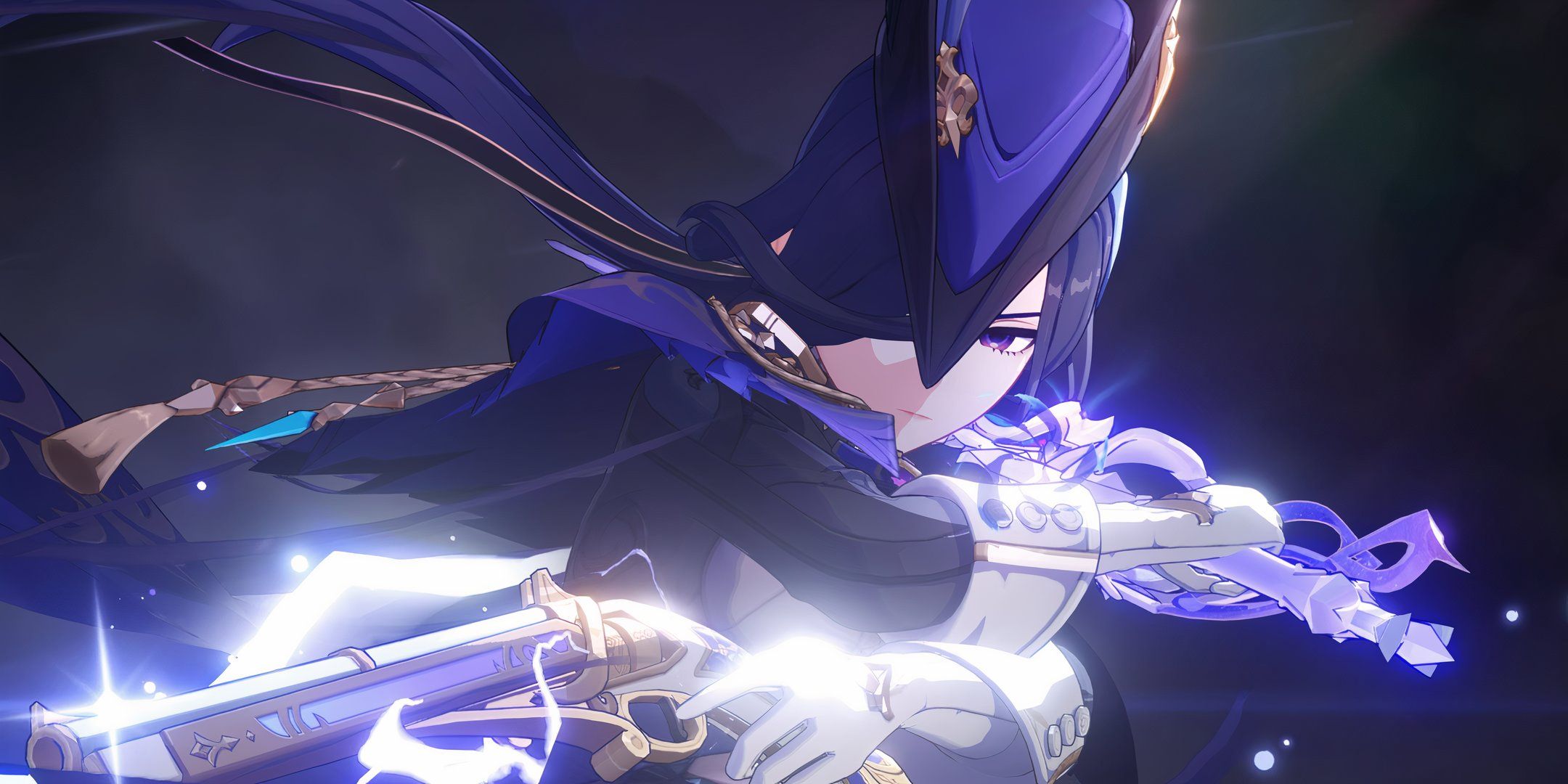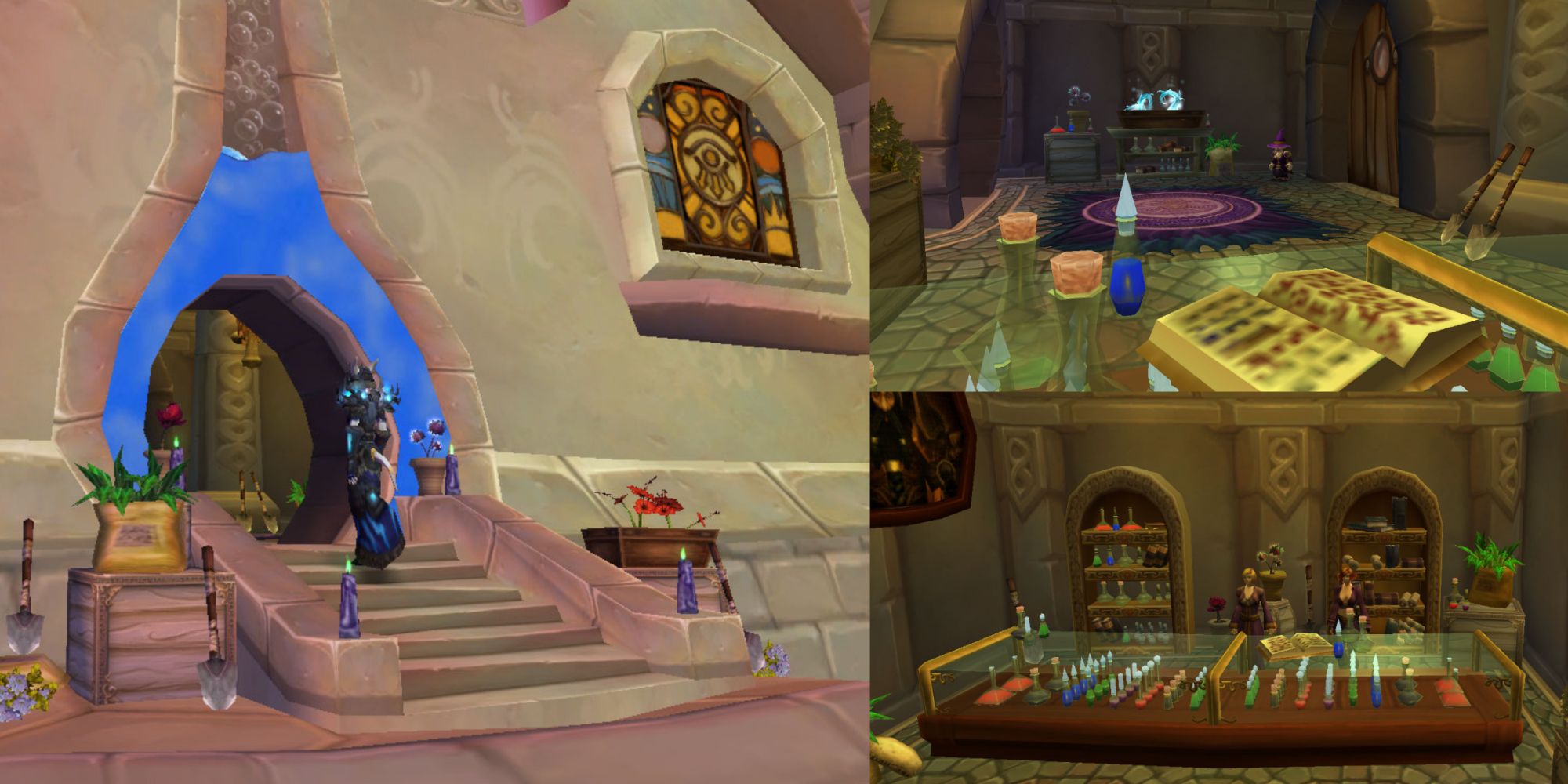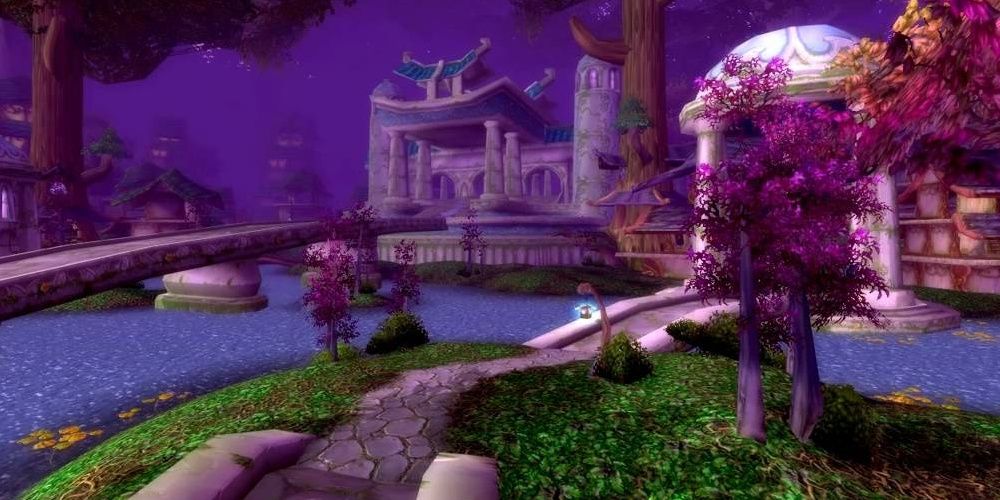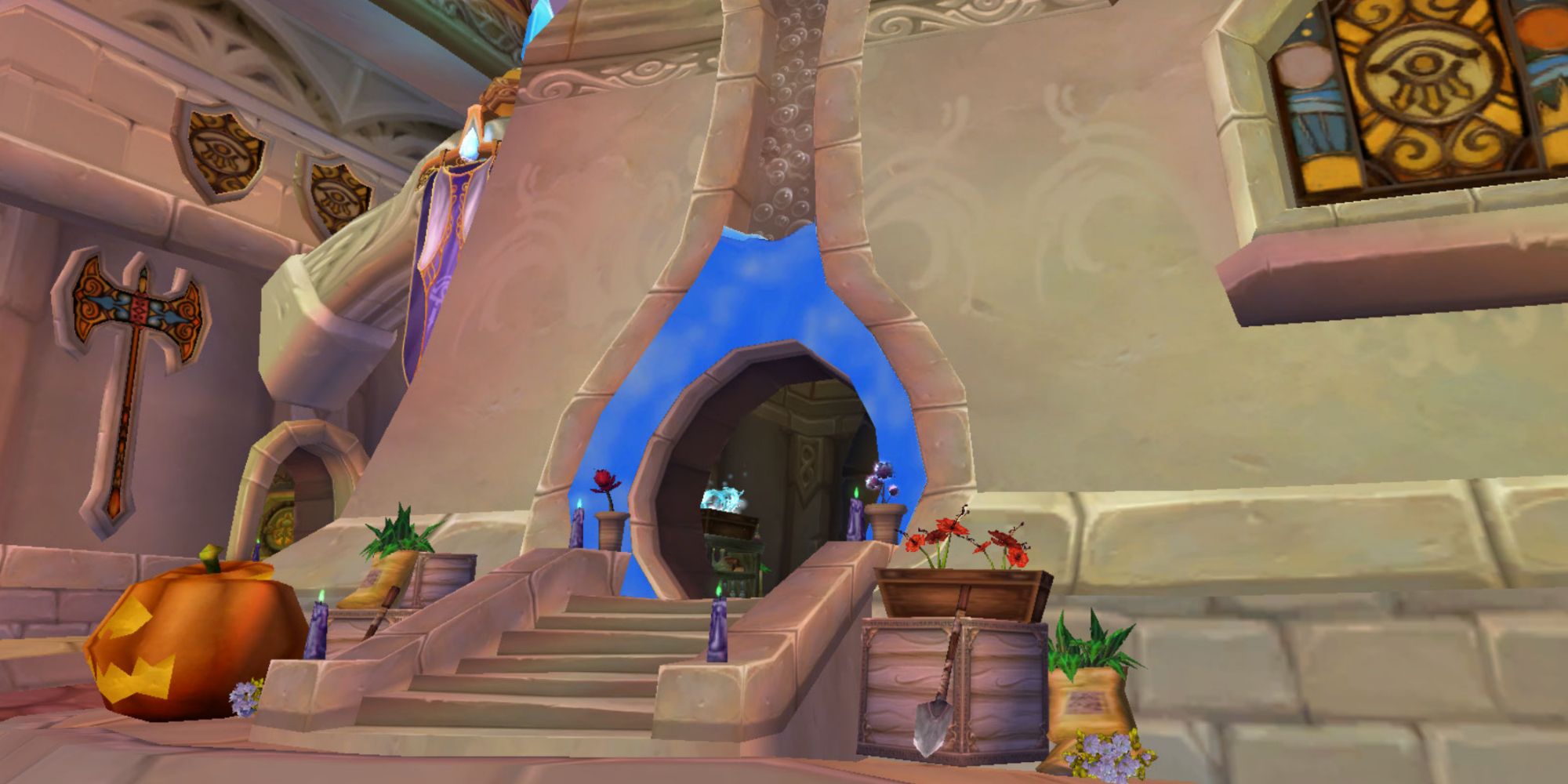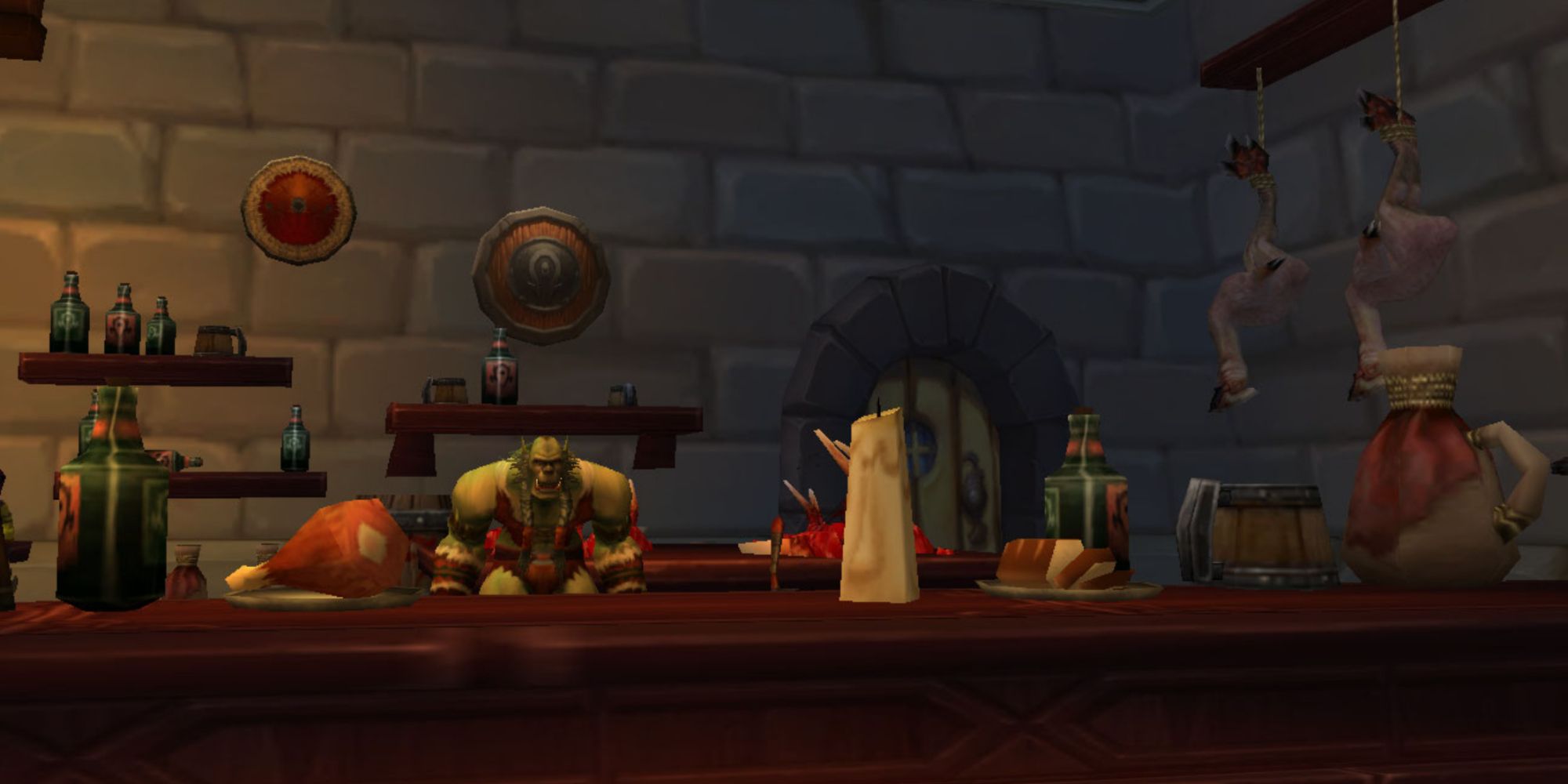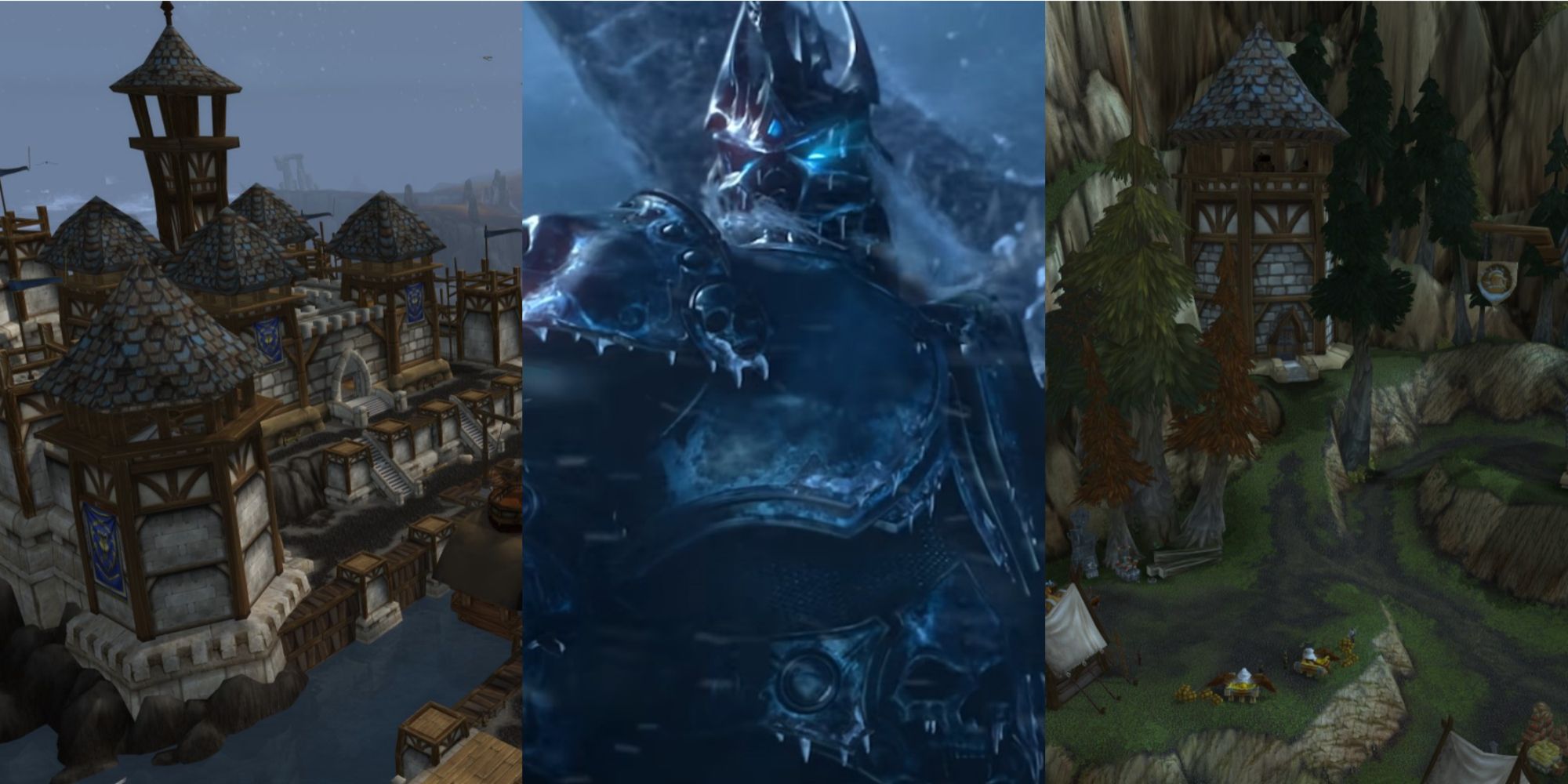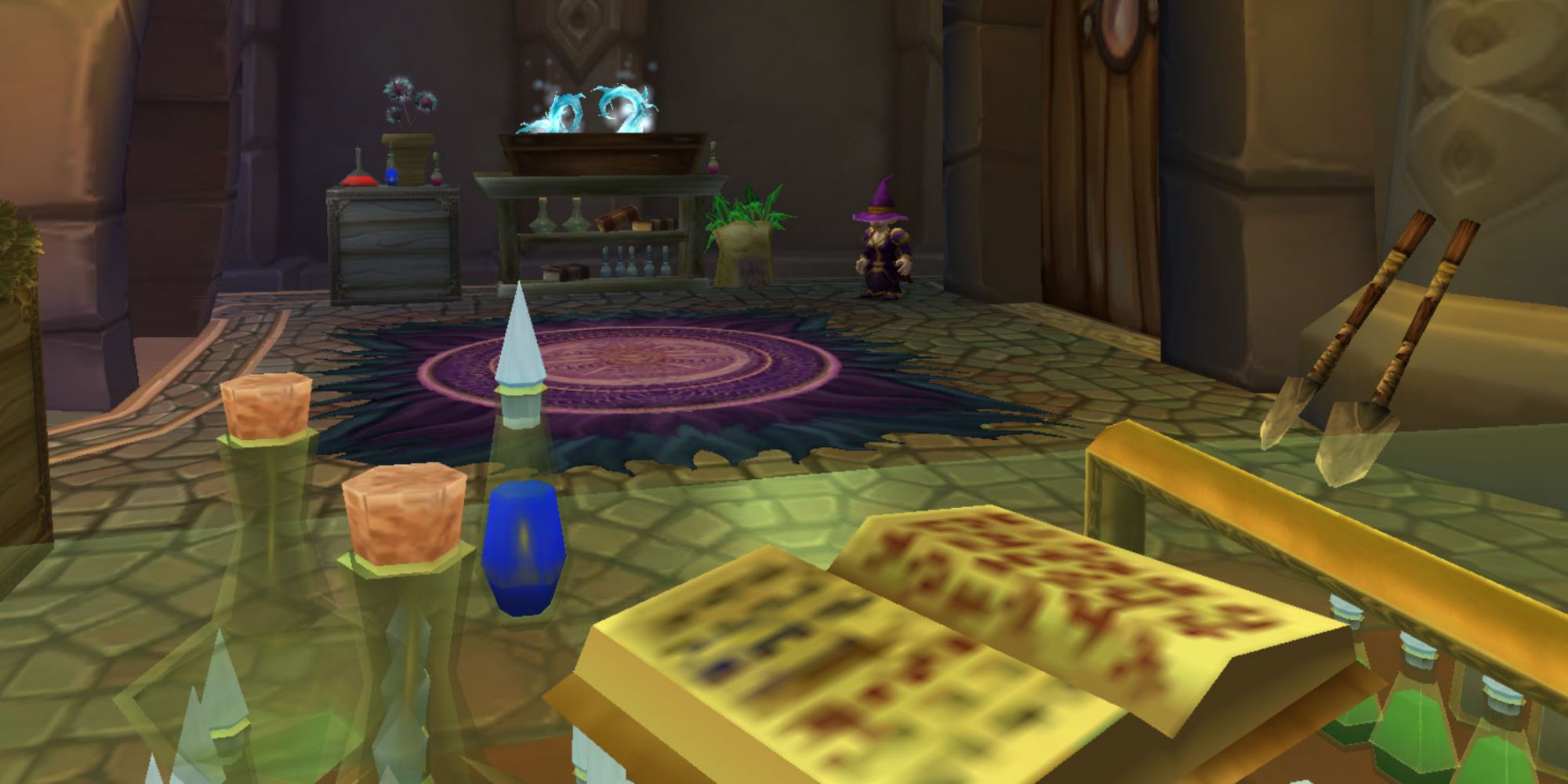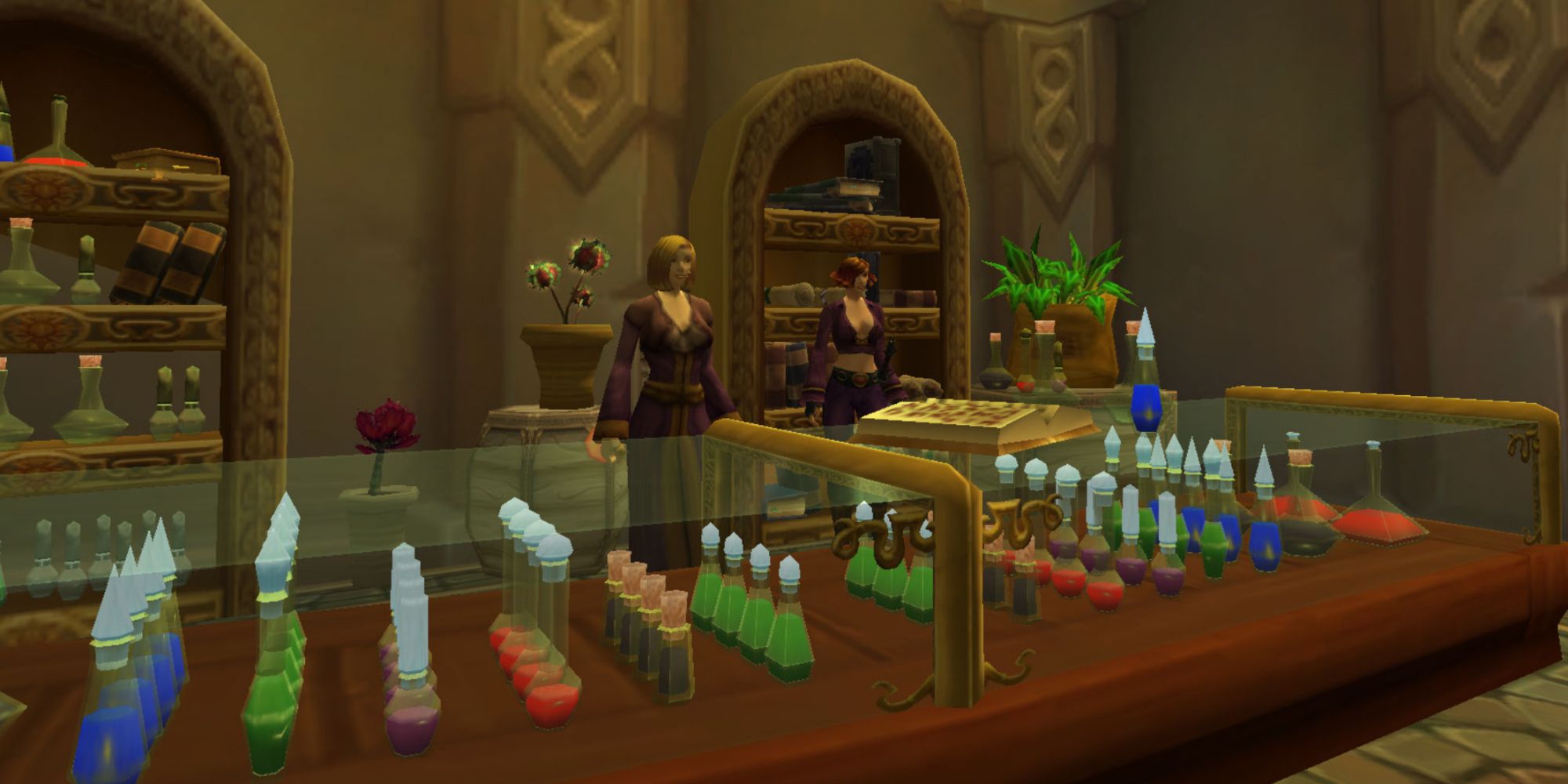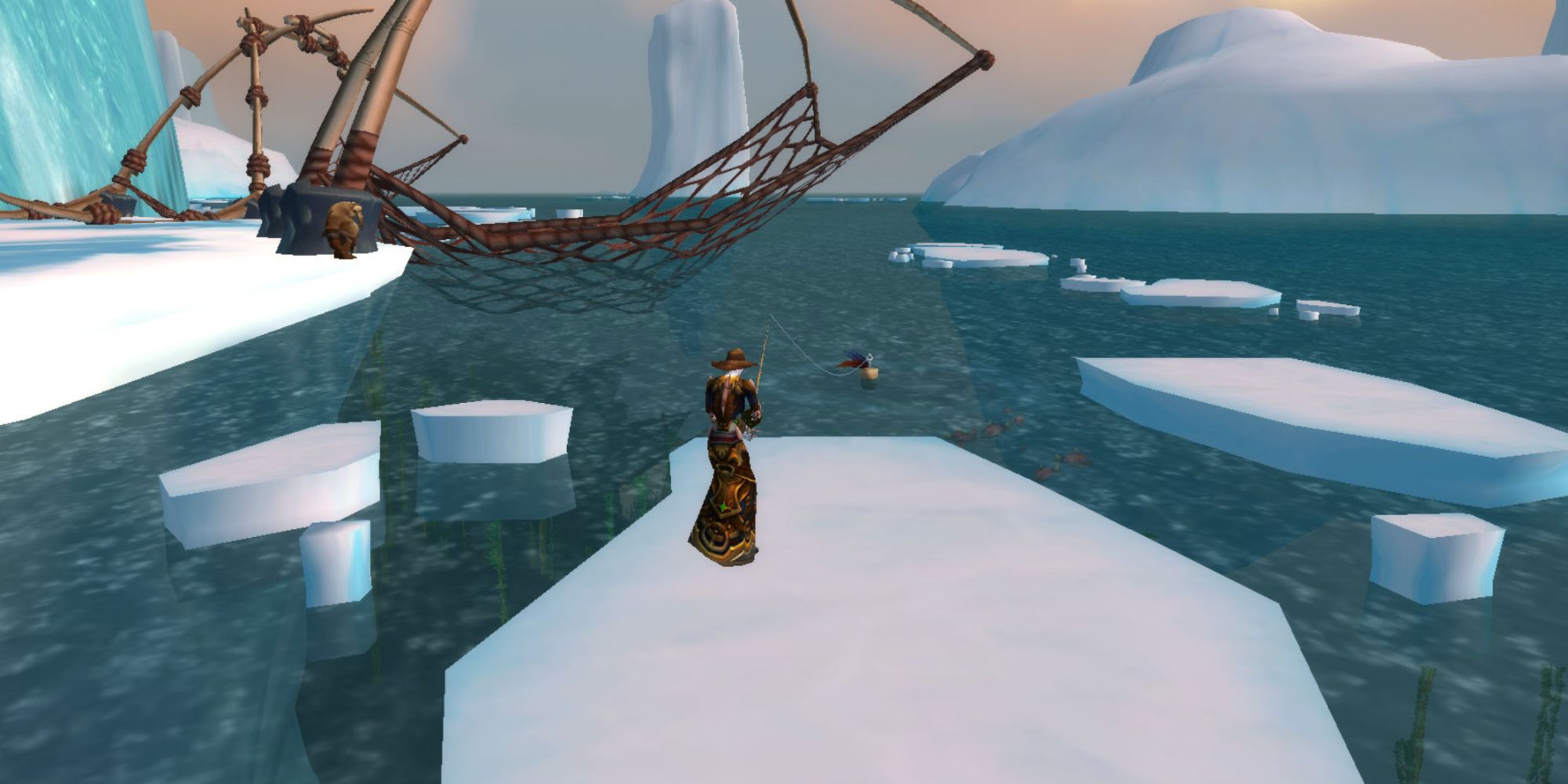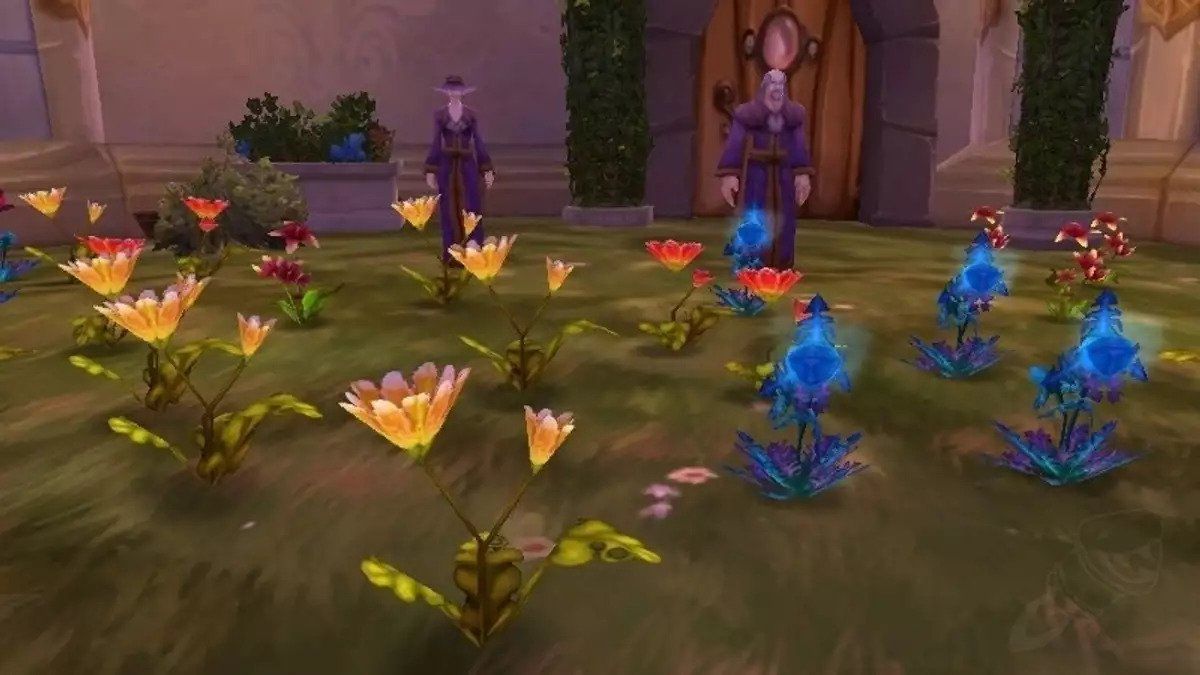Quick Links
-
The Alchemy Of Old Azeroth
-
The Alchemy of Outland
-
Alchemy Trainers In Northrend
-
Grand Mastery Alchemy
Alchemy is one of the professions that flies under the radar in World of Warcraft: Classic. It's not as flashy or fun as Engineering and isn't new and trending like Inscription, but it's one of the most important professions in the game. Every guide or raid needs an Alchemist, and it's not just for the mixing skills either. You have to make sure to grind up your professions as well as your levels, and that takes a lot of time, resources, and gold.
Alchemists make the Potions and Elixirs that are essential for PVP and raids. Other important skills include Transmutation, which is essential for making rare resources and materials needed for BiS gear, which is another skill unique to Alchemists.
Jewelcrafters and Blacksmiths are often Miners, and Alchemy is a profession that's often paired with Herbalism. It's not mandatory to pair them up, and herbs are one of the cheaper resources when it comes to shopping, readily available at the Auction House or from other players. Alchemists who have some extra gold to spend can take a second profession like Engineering or Tailoring, which might even be essential depending on your plans for the endgame.
The Alchemy Of Old Azeroth
Most gamers wait until they reach the first major city before picking up a profession, and the beginning quest lines will often lead in that direction, but you could start herbing or mixing from level one if you wanted.
There is one neutral trainer in Azeroth. Jaxin Chong can be found in Booty Bay, the goblin city on the southern cape of Stranglethorn Vale. She's on the top level with the other trainers, above and behind the Herbalist.
Horde Alchemy Trainers
- Bena Winterhoof. The trainer in Thunder Bluff has her shop near the north end of the middle rise.
- Carolai Anise. Forsaken characters will find this trainer first in Brill, a location in Tirisfal Glades close to their starting area.
- Doctor Herbert Halsey. Find the doctor in the Apothecarium, in Undercity, which is in the southwest quarter. He also has some quests that any class or profession can do.
- Miao'zan. Sen'jin Village is right across from the Troll and Orc starting area in Durotar.
- Rogvar. The Swamp of Sorrows is an essential stop for both Herbalists and Alchemists, which is why Stonard is where one of the advanced trainers is located.
- Serge Hinott. Tarren Mill is the Horde city in Hillsbrad Foothills. Like his peer in Undercity, he also has quests to share.
- Yelmak. The Drag is the long, shady corridor on the eastern side of Orgrimmar and the alchemy shop is on the lower right side.
Alliance Alchemy Trainers
- Ainethil. She's in Craftsman's terrace in Darnassus, in one of the shops close to the water.
- Cyndra Kindwhisper. Dolanaar is a city in Teldrassil close to the starting area for Night Elves.
- Ghak Healtouch. A convenient stop between Khaz Modan and the Wetlands is Thelsamar, which is the southern part of Loch Modan.
- Kylanna Windwhisper. There's a dock on the shore where you can take a quick ferry ride to Feathermoon Stronghold, which is located on an island off the west coast of Feralas.
- Kylanna. Not in the main city of Astrannar but a small outpost on the northern shore of a lake in southern Ashenvale. No relation to the Kylanna in Feralas.
- Lilyssia Nightbreeze. Find her in a southern part of the Mage Quarter in Stormwind.
- Mallory. Goldshire is the first major city most human characters find after leaving their starting area and traveling to Elwynn Forest.
- Tally Berryfizz. Tinker Town is the Gnome section of Ironforge, where you can also find the Deeprun Tram.
Apprentice Alchemy
Levels 1 to 140
- Start with going from one to 60 by making Minor Healing Potions. You need these anyway, and they can also be sold or traded. The ingredients required are Peacebloom and Silverleaf.
- Grind up to 75 with a new recipe, the Lesser Healing Potion. You only need one ingredient for this one, Briarthorn, and this recipe gives you skill points up to 110.
- At 75, you can train for Journeyman Alchemy as long as your character is level 10.
- By now, you have learned the regular Healing Potion recipe, which requires Briarthorn and Bruiseweed. Making these will take your Alchemy skill up to 140.
Expert Alchemy, Levels 140 to 210
- Raise your character's level to 20 and visit the nearest trainer.
- Start by doing some fishing, specifically for Firefin Snapper. This is used to make Fire Oil, and it grants skill points until 155. Fire Oil might be a better investment because it can be used to make higher-level potions or sold to Engineers.
- Lesser Mana Potions or Regular Healing potions can also fill the 140-155 gap.
- Use those Fire Oils to make a few Elixirs of Firepower. This is one of the earliest raid-recommended recipes and is especially sought after by Mages and Warlocks.
- At level 185, you can learn recipes for the Elixir of Agility, Mana Potion, Nature Protection Potion, and Lesser Invisibility Potions, and any combination of these can grind your Alchemy level to 210.
Artisan Alchemy, Levels 210 to 300
- Make sure your character is at least level 35 and visit the nearest trainer.
- The Elixir of Greater Defense and the Superior Healing Potion are essential items for the more dangerous quests and instances once players reach this level. These two recipes can get you up to 230.
- The Elixir of Detect Undead isn't useful for much else other than grinding up your Alchemy level to 265. The much more useful Superior Mana Potion and Major Healing Potion to reach 300.
The Alchemy of Outland
The creation of Outland started a tradition of neutral professional trainers in the sanctuary city along with those in small towns that most players were first likely to visit. Hellfire Peninsula was the zone that greeted us on the other side of the Dark Portal, and that's where most of Outland's trainers are found.
At Alchemy level 275, you can learn Transmutations. This includes metals like Arcanite along with magical components like Primals and Motes. These are the first recipes you'll learn that have a cooldown time, in this case, 24 hours. You don't need to use these to grind up your level, but they are essential to know and useful for the crafting and collecting that's required at high levels and in Outland.
Master Alchemy Trainers, Levels 225 to 350
- Neutral. Lorokeem is one of the Arokoa in Shattrath City. He's in the treehouse near a handy Alchemy Lab that you can use to make flasks instead of going to Stratholme.
- Alliance. Alchemist Gribble is in Honor Hold in Hellfire Peninsula. It's the Alliance outpost to the southwest of the Dark Portal.
- Horde. Apothecary Antonivich is on the bottom floor of the watchtower on the hill above Hellfire Peninsula.
Alchemy Trainers In Northrend
World of Warcraft: Classic has returned to Northrend, and along with the fun of slaying and exploring, there's plenty of work to be done. Here's a handy guide to all those flasks and titan-steel bars when it comes to maxing out your Alchemy profession.
This portion guide is for players who have raised their Alchemy skill to 350. Trainers in Northrend can only train you if you have a skill level of at least 350. This also means you have already chosen to specialize in either Potions, Elixirs, or Transmutation and have crafted an Alchemist's Stone that can be used for more complex recipes.
Horde
- Wilhelmina Renel. Find her in Vengeance Landing in Howling Fjord, which is easy to find via zeppelin from Tirisfal Glades. She's in the same building as the Herbalism trainer, convenient for those Alchemists that collect their own resources.
- Arthur Henslowe. This is the first trainer most Alchemists will meet in Northrend since the majority of traffic to the Borean Tundra comes directly from Orgrimmar. He's under the stairs with the Herbalism and First Aid trainers.
- Apothecary Wormwick. One of two Alchemy trainers in Dragonblight, he's in Venomspite, a Forsaken city on the eastern end of the zone close to New Hearthglen.
- Apothecary Bressa. For those coming from the west, Agmar's Hammer is in western Dragonblight, and Bressa has her lab outside, across from the main building.
Alliance
- Lanolis Dewdrop. He's in the tavern in Valgarde, the main Alliance settlement in Howling Fjord, seemingly impersonating the bartender. Given the nature of Alchemy maybe that isn't so weird.
- Falorn Nightwhisper. Find him with the other trainers in Valiance Keep, by the tents and awning near the road to the left of the docks. If you get on the boat in Stormwind Harbor, this is the stop in the Borean Tundra.
Neutral
- Linzy Blackbolt. Careful you don't miss Linzy, who's standing in a dark corner across from the shop counter near the door. The Agronomical Apothecary is the Alchemist shop in Dalaran, and once you find it, there won't be a need to return to the other trainers.
Since Herbalism is the gathering skill used to obtain most of the ingredients for Alchemy, there's always a Herbalism trainer near the Alchemy trainer. In Dalaran, the Herbalism trainer is in the building next door to the Argonomical Apothecary.
Grand Mastery Alchemy
The Pygmy Suckerfish can be made into Pygmy Oil, which is an essential ingredient in several handy, high-level Northrend recipes. Not only will this help grind up your level, but it will also provide you with a resource that can be used with other recipes or sold for a decent amount of gold.
All of the Alchemy recipes at this level use the Enchanted Vial, which isn't always available from regular Trade Vendors. You might have to seek out an Alchemy trainer to purchase them and that means visiting a major city.
Levels 350 to 390
- Pygmy Oil alone can be sued to take you to 390, so Alchemists who aren't Herbalists get a break. This might be a better option especially if your character needs to level both their Fishing and Cooking skills.
- For those that prefer the vegan route, stock up on Goldclover, Talandra's Rose, Tiger Lily, and Adder's Tongue. Use it to make a few Resurgent Healing Potions and throw in a few Icy Mana Potions if your class needs them.
Levels 390 to 400
At this point, the Pygmy Oil will no longer yield experience, so grind the rest of the way up by making a few Elixirs of Mighty Agility or Elixirs of Mighty Strength.
At level 400, your character will learn Northrend Alchemy Training. This is a handy passive ability that allows you to mix a variety of common Northrend plants in an attempt to discover something new. It has a three-day cooldown, but this is separate from the Transmute cooldown.
Levels 400 to 425
- Your priority here should be Northrend Alchemy Research, a recipe available at level 400.
- Even after maxing out your professional skill, this can still be used to discover new recipes.
- An example of a new recipe you can learn through this skill include the Elixir of Lightening Speed, which increases your Haste Rating by one hour, a buff that's useful to every class.
The cooldown for this ability is three days, which is a long wait, so in the meantime collect yet another bushel of Goldclover, Adder's Tongue, and Talandra's Rose along with some Dreadnettle, Icethorn, and Lichbloom.
Make any combination of the following to reach a skill level of 425.
- Elixir of Mighty Agility. Requires Goldclover and Adder's Tongue. More Agility is best for Rogues and Warriors but is handy for any class.
- Elixir of Mighty Thoughts. Buffs your Intellect, so good for Warlocks and better for Mages. You need Dreadnettle and Talandra's Rose.
- Runic Mana Potion. Restores your mana. They're often found in the Northrend Adventuring Supplies as well. Make it with Goldclover and Lichbloom.
- Indestructible Potion. As the name suggests, it increases your armor by an overpowered amount, but only lasts two minutes. Requires Icethorn
There's an Alchemy Quest called "Cardinal Ruby" that is currently available to players with a maxed-out Alchemy skill that is also level 80. However, this is a bug. The transmute recipes required for this quest will not be available until the Trial of the Crusader patch which has yet to be released. Normally these would be available at level 430.
425 to 430
At this point, Alchemists will learn the recipe for Titanium, which requires eight Saronite Bars. This is the first high-level transmute in Northrend.
Waiting for this ability's cooldown is too much for most people, but the price of Saronite Bars is fairly low and it is possible to grind out the last five points to 430 using the Saronite transmute. For players that need the resources anyway, it might be worth the wait.
For others, however, there might be new recipes that can be used instead, which were discovered through Northrend Alchemy Research along with Runic Mana Potions and Indestructible Potions.
430 to 450
Finally, you'll learn how to make Flasks, a new Alchemical concept introduced in The Burning Crusade that's been brought to the next level in Wrath of the Lich King. Some of these concoctions are soulbound to the Alchemists, so they can't be sold, left in the guild bank, or given to friends, but the advantage is that they never run out. Non-flasks that have this property include the Endless Mana Potion and the Endless Healing Potion.
At level 430, you'll learn the recipes for the following flasks. Unlike the endless potions that you learned previously, most of these can be passed on to friends or sold to fellow players and are sought after for raids and PvP. All of these recipes last for one hour when used and can be used again later with one more charge, the exception being the Flask of the North.
- Flask of the North. Only requires Frost Lotus, and gives a buff to spell power, attack power, or strength depending on the class. It lasts forever, but the catch is that it's soulbound.
- Flask of Endless Rage. Increases Attack Power, so mostly for melee fighters. Requires Lichbloom, Goldclover, and Frost Lotus.
- Flask of Pure Mojo. Increases mana regeneration, which is handy for healers and magic users. Requires Icethorn, Pygmy Oil, and Frost Lotus.
- Flask of Stoneblood. Increases your maximum health, so great for anyone but ideal for tanks. You need Lichbloom, Crystallized Life, and Frost Lotus.
- Flask of the Frost Wyrm. Essential for DPS magic users in dungeons, raids, or PvP, this grants a healthy buff to spell power. Requires Icethorn, Lichbloom, and Frost Lotus.


